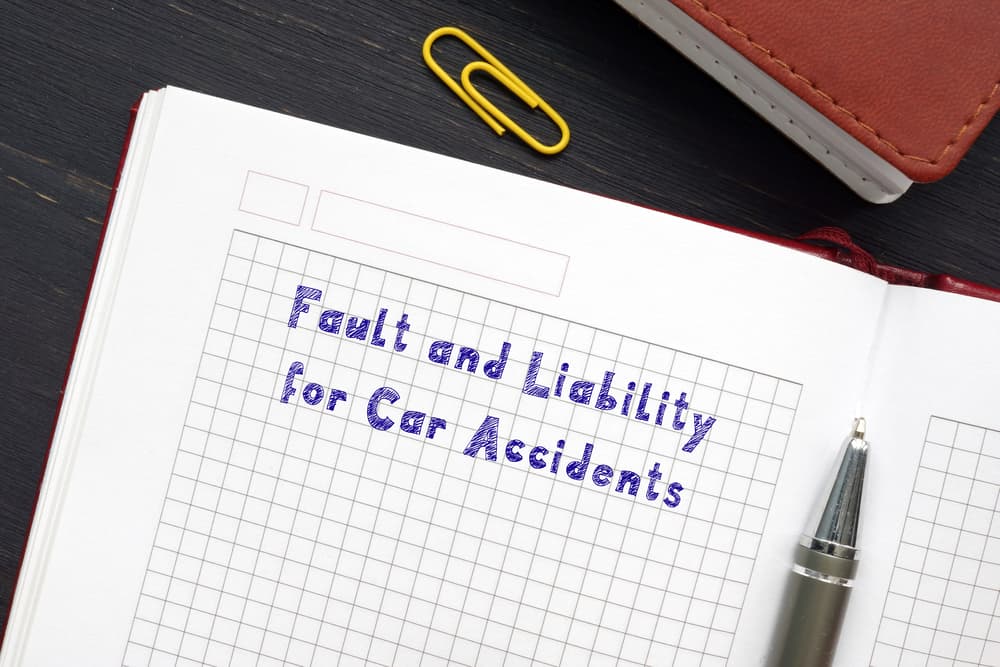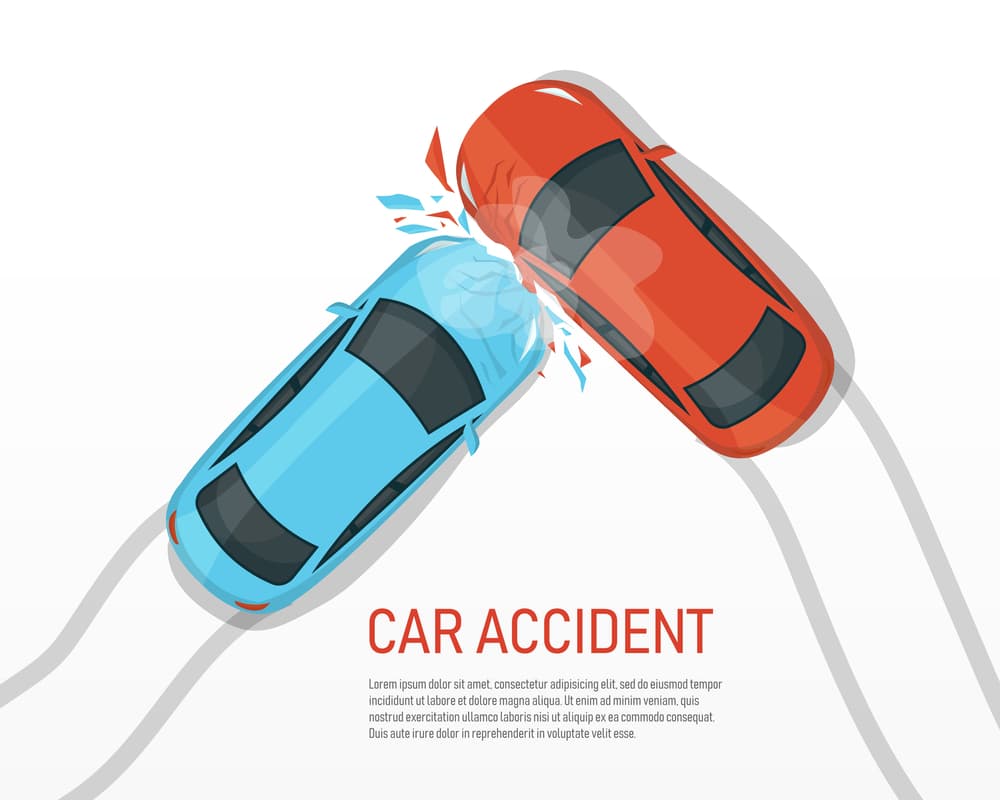Friends often let friends borrow their cars for various reasons. But what happens when that friend who borrows the car is involved in a car accident? The situation may not be as complicated as it may seem, but liability determinations and the overall outcome depend on several different factors.
Whether you’re the friend who was in an accident or the owner of the crashed vehicle, it’s best to consult a San Jose car accident attorney right away. A lawyer can help ease any worries and address pressing questions and concerns to help reach the best resolution.
Understanding Fault Laws

First and foremost, it’s crucial to understand fault laws for car accidents and how these rules can affect the claim process. States operate under either fault or no-fault laws.
In fault states, fault matters. Therefore, if you’re involved in an accident, you can pursue compensation from the liable party’s insurance company by filing a third-party insurance claim.
On the other hand, in no-fault states, it is unnecessary to prove fault to recover compensation. Instead, you will file a first-party insurance claim through your own insurance to obtain financial recovery.
Dealing with insurance and claims in fault states can be a little more complicated and involved. It’s usually a bit more straightforward in no-fault states, as accident survivors can turn to their own insurance companies for protection.
Determining Liability for a Borrowed Car Accident: Owner vs. Driver
If your friend borrows your car and they crash, who’s at fault? Your friend, who was driving the vehicle at the time, or you, the owner of said vehicle?
As the owner of the vehicle, even if you weren’t driving, your insurance will usually be the one to kick in if your friend is responsible. Auto insurance typically follows the car, not the person.
However, there are certain instances where a car owner can be liable for their friend’s accident in their vehicle. It depends on certain details, specifically the facts surrounding the lending of the vehicle.
Who’s Auto Insurance Matters?
Because car insurance follows the car, the car owner’s insurance is the one that matters. Even if the friend driving the car has their own insurance, they wouldn’t normally need to use it unless there’s a specific reason.
For example, if the car owner’s policy limits aren’t enough to cover the other party’s expenses, they may also need to file an insurance claim through the friend’s insurance for supplemental compensation. However, this is only an issue when the friend driving the vehicle is at fault.
Therefore, unless your friend is responsible and your policy has been exhausted, your insurance will be the only one that matters.
Permissive vs. Non-Permissive Use
A critical aspect of friend accidents that cannot be overlooked is permissive and non-permissive use. Essentially, the situation's outcome partly rests on whether your friend had permission to drive your vehicle.
Permissive use is when a friend borrows your car with your permission. Permission can be entirely oral and does not need to be in writing. When an individual has permission from their friend to borrow their car, the car owner’s insurance covers damages for the accident, and the friend’s insurance serves as secondary insurance if necessary.
Conversely, when a friend takes your car without your permission, this is referred to as non-permissive use. In this scenario, your insurance may not cover the collision if your friend is responsible for the crash. Your friend’s insurance will need to kick in instead, but if your friend doesn’t have an active auto insurance policy, unfortunately, you may be personally liable.
Exceptions to Coverage for Permissive Use – Negligent Entrustment

Usually, when a vehicle owner gives their friend permission to drive, their auto insurance protection extends to the friend. However, there is an exception to coverage for permissive use when vehicle owners negligently entrust their vehicles to friends who might be a risk to themselves and others.
Common examples of situations that can entail negligent entrustment include permitting the following individuals to drive:
- Underaged individuals
- Individuals who have yet to get their driver’s license
- Intoxicated individuals
- Individuals who have had their licenses suspended or revoked
- Elderly individuals with dementia
In a negligent entrustment situation, the vehicle owner’s insurance will likely decline coverage. The accident survivors can also hold the car owner personally liable for damages.
Vehicle owners need to consider who they’re lending their cars to. Letting the wrong person borrow a car can have devastating consequences.
Can a Vehicle Owner Sue their Friend for a Collision?
If your friend is at fault for crashing your car, your car insurance may cover the accident if they’re at fault. But do you have any recourse yourself?
When your friend has permission to drive your car and causes an accident, your insurance will likely kick in to provide coverage. This means those injured in the collision can pursue compensation for their damages, and if need be, they can seek additional financial recovery from your friend’s insurance.
Depending on state laws, if your friend suffered injuries in the accident, they can pursue compensation through a first or third-party insurance claim. This can help ensure your friend gets compensation for their damages and your vehicle is repaired.
When the crash survivor (your friend or the other party) gets compensation through insurance, you’re not personally liable, and you won’t have to pay any money out of pocket. Therefore, you may not have any legal recourse, especially if the insurance covers the damage to your vehicle.
Still, every state and its rules are different. If you have questions concerning your right to file a lawsuit, it’s always best to discuss them with a skilled car accident attorney.
Effects on Insurance Rates Following a Claim
If your friend is at fault for an accident in your car and your insurance provides sufficient coverage for the survivor’s damages, you don’t have to worry about facing personal liability. Nonetheless, there are certain negative repercussions, namely insurance rate changes.
Insurance rates often change after an accident, especially if you’re at fault. This happens for several reasons, but primarily because, following a collision, the insurance company sees you as a liability. Insurance companies calculate their rates based on risk, and if they see you as a risky driver, rates are likely to rise.
While it may seem unfair, the same rule applies even if you were not driving your car during the collision. If your friend caused an accident in your car and your insurance covered the survivor’s damages, your insurance premiums will probably go up. Based on the situation, the increase in your premium may persist for several years, even if you switch providers. Similarly, if your friend’s insurance is necessary as secondary insurance coverage, their rates may also go up.
If you or your friend should not have liability for the crash, you need to fight to prove that someone else was responsible. Do so with help from a car accident attorney.
What if Another Party is Liable for the Crash?
When your friend is driving your car and another driver crashes into them, the party that caused the crash will be liable, not your friend. Therefore, your friend can pursue compensation in various ways based on the circumstances.
If you’re in a fault state, your friend can seek financial recovery directly from the at-fault driver’s insurance company by filing a third-party insurance claim. Alternatively, if you’re in a no-fault state, your friend can file a claim through your no-fault insurance to get compensation for their injuries and losses, including the damage to your vehicle.
In certain situations, your friend may also have the opportunity to file a personal injury lawsuit against the responsible party. Filing a lawsuit may become necessary if the at-fault driver’s insurance is unwilling to settle the claim fairly or if the responsible driver doesn’t have any insurance.
Other Parties That Might Be At Fault for an Auto Accident

Many accidents are caused by driver negligence and dangerous driving behaviors, including speeding, distracted driving, and failure to yield. In situations like this, the party responsible for causing the crash will also be financially liable.
However, other parties can be at fault for causing a collision, including:
- Driver employers
- Governmental entities
- Construction companies
- Mechanics and repair shops
- Product manufacturers and distributors
- Rideshare companies
For example, if your friend is involved in an accident due to a hazardous road condition, like broken pavement or missing signage, the government or another road crew is likely at fault. On the other hand, if your friend’s collision results from a mechanical failure in the vehicle, a product manufacturer or distributor may be liable.
Determining the cause of collisions is important, no matter who’s driving. This helps ensure the accident victim pursues compensation from the appropriate party. Your car accident lawyer can identify all responsible parties.
What To Do Following an Accident in a Friend’s Car
When your friend has borrowed your vehicle, and you receive notification they’ve been in an accident, it’s important to remain calm. Your friend is likely nervous, so you should assist them through the process, even by phone, and tell them what to do to protect their rights and yours.
Be sure to instruct your friend to call the police. Police presence at the scene of an accident is welcomed, especially because law enforcement officers can acquire information that can be pertinent to future claims. In the days following a collision, the officers who reported to the scene of the crash can take the details they gather and put them into a police report, which often serves as critical evidence.
If possible, have your friend start collecting evidence at the scene. This can include photos and videos, the other driver’s information, and witness contact details. Any evidence they obtain might be helpful in a claim later on.
Tell your friend to get medical attention, regardless of how they feel following the collision. Even if they don’t suffer injuries that require emergent attention, it’s best to have them seek medical care at an emergency room or urgent care to determine the extent of any injuries they may be unaware of.
No matter what, deter your friend from admitting fault. Sometimes, even if a driver isn’t at fault for a collision, they’re shaken up from the experience, causing them to say things they don’t mean or even remember in the future. Your friend should remain relatively silent on the subject and avoid giving away too much information to anyone.
Contact your insurance company as soon as possible after the crash. You must notify your insurer of what happened, even if your friend was not at fault for the collision. Better yet, have your car accident attorney notify your insurer, as they can field any questions or requests without worrying about misstatements that might jeopardize the process.
Finally, consult a local car accident lawyer right away. Time is limited to take action after an auto collision, and accidents involving lent vehicles can be particularly challenging to navigate. An attorney can provide much-needed clarity and reassurance during a difficult time.
Seeking Legal Guidance From an Experienced Car Accident Attorney
Allowing a friend to borrow a car requires significant trust. Lending a car to the wrong person can negatively impact many things, including your insurance rates and financial well-being. However, even the most experienced and trusted drivers can get into accidents, as some collisions are unavoidable.
If your friend is involved in an auto accident while driving your vehicle, do not hesitate to seek assistance from a San Jose personal injury lawyer in your area. Car accident claims are daunting enough, but when a friend is driving your car, the situation can be much more confusing to sort out.
An attorney can provide better insight into the claim process for both you and your friend, whether your friend was at fault or not, and help ensure a beneficial result. Having a lawyer on your side can also give you some peace of mind, as these situations can be especially stressful for everyone involved.
